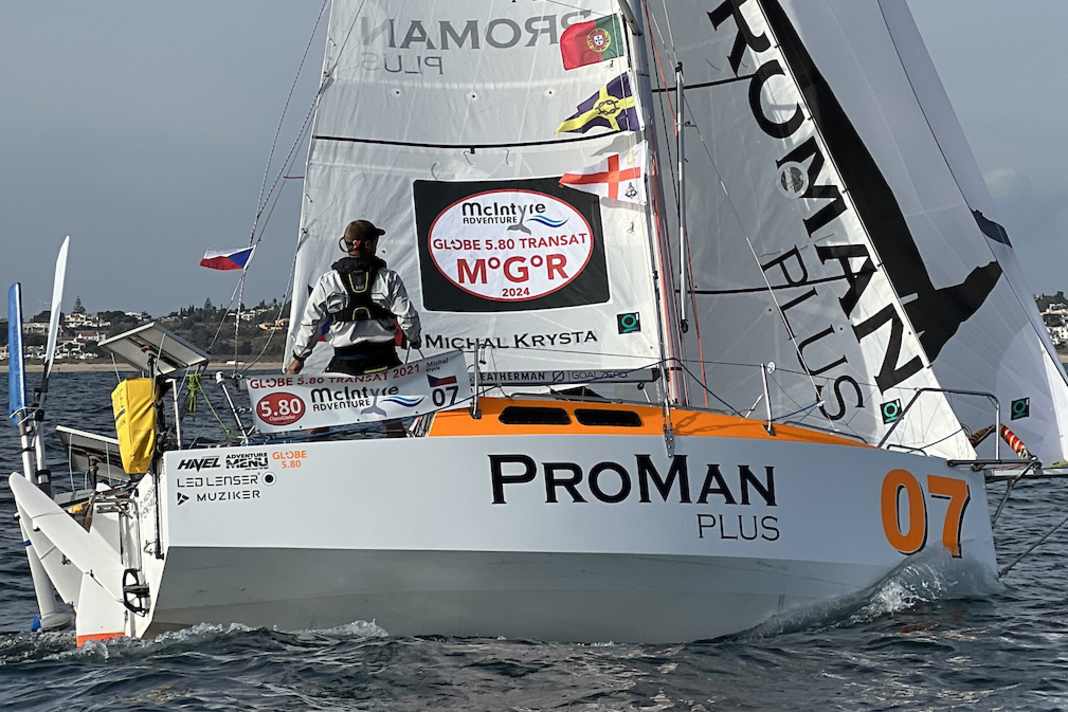





The Ocean Race is considered the toughest stage race around the world, albeit in a team. The Mini Globe Race is much less well known, but probably unrivalled in four stages. Instead of sailing on Imocas worth millions, the participants sail on 5.80 metre long plywood yachts worth 50,000 euros. The starting signal will be given on 23 February 2025.
As things stand today, 16 men and two women from eleven nations will be taking part. Among them are the two German adventurers Christian Sauer and Patrick Forkel as well as the Swiss Renaud Stitelmann. Initiator Don McIntyre emphasised: "It will be a gruelling journey. I have great faith in the sailors, the boats and the meticulous planning that has gone into this event over the last five years." He added that the Mini Globe Race is an exciting addition to his two other round-the-world races.
Globe 5.80: Building plans for 300 euros
The Australian is also the organiser of the two successful retro regattas Ocean Globe Race and Golden Globe Race. Consequently, the Mini Globe Race also has its origins in sailing history. It harks back to the first editions of the still established Mini-Transats. At the premiere in 1977 and two years later, Frenchman Jean-Luc Van Den Heede, who also won the first Golden Globe Race (2018/19) at the age of 73, competed with a plywood design.
Based on this, McIntyre launched the "Class Globe 5.80" and a corresponding transat in 2019 in collaboration with Polish designer Janusz Maderski, which he immediately completed himself with build number one. The ocean-going one-design yachts are built in-house from plywood on wooden frames and covered with fibreglass. 5.80 refers to the length in metres, the minis can be trailered and fit into a 20-foot container. The construction plans are available for 300 euros. Alternatively, you can also opt for a CNC-cut plywood kit. According to the organisers, over 80 yachts are currently under construction and around 20 are already in the water.
To actually be allowed to take part in the Mini Globe Race, the participants not only have to pass various tests and complete survival and medical training, but also sail over 3,600 nautical miles across the Atlantic alone in a qualifying race. This will run from Portugal via Lanzarote to Antigua from 28 December 2024.
Mini Globe Race: Around the world in four stages
The actual circumnavigation will start from there a few months later, where it will also end around 13 months later. The first stage will take the sailors from Antigua to Panama, where the yachts will be transported overland to the Pacific. The second leg will cover 6,500 nautical miles to the Fiji Islands, with mandatory stops in the Marquesas, Tahiti and Tonga.
It will then set sail on the 8,500 nautical mile course to Cape Town, with stops in Darwin, Mauritius and Durban. The fourth and final leg begins on 22 December 2025 with stops in St. Helena and Recife before the final spurt back to Antigua at the end of March 2026.
